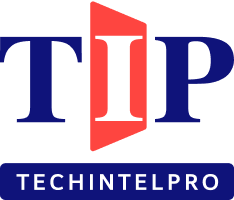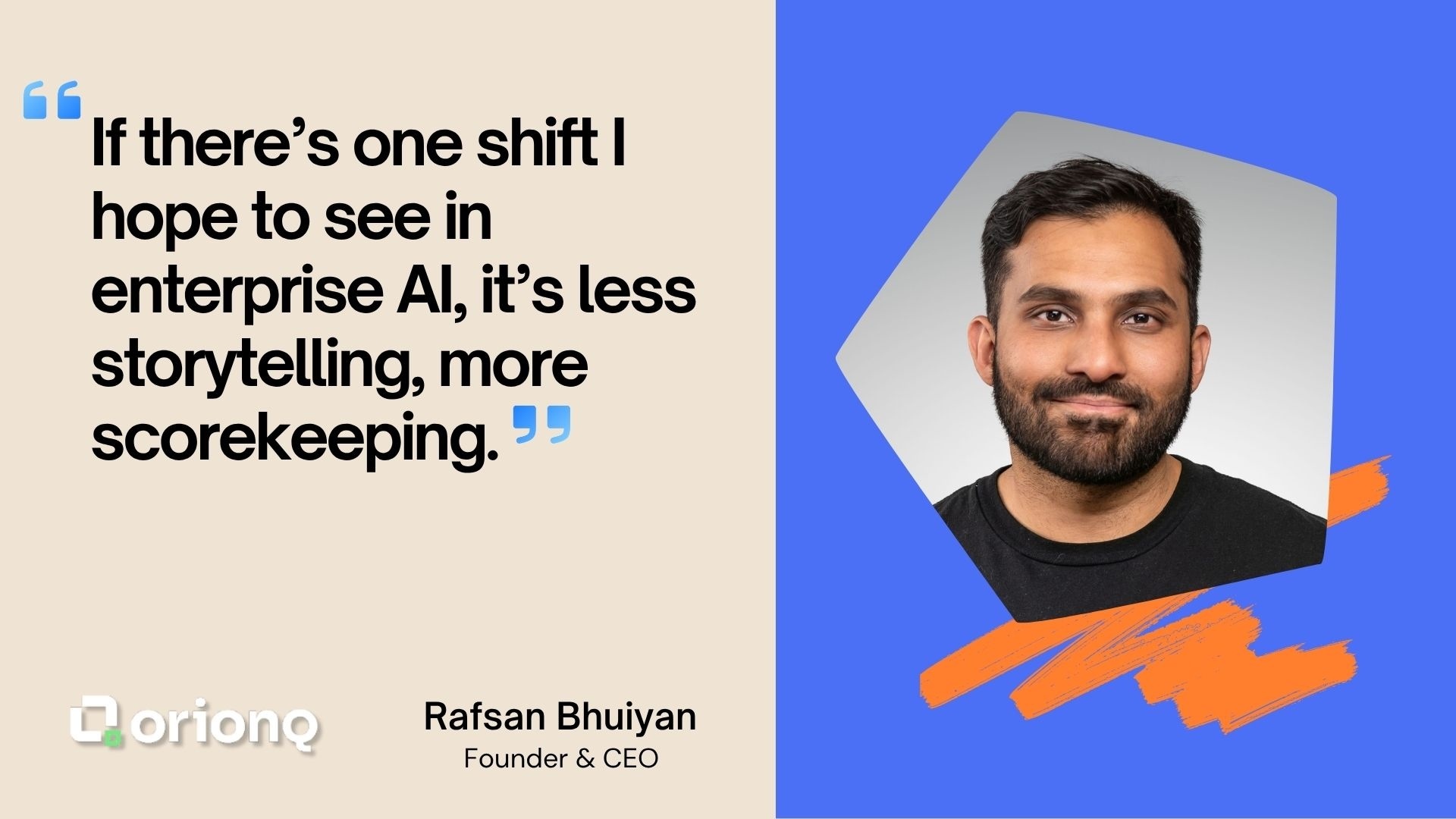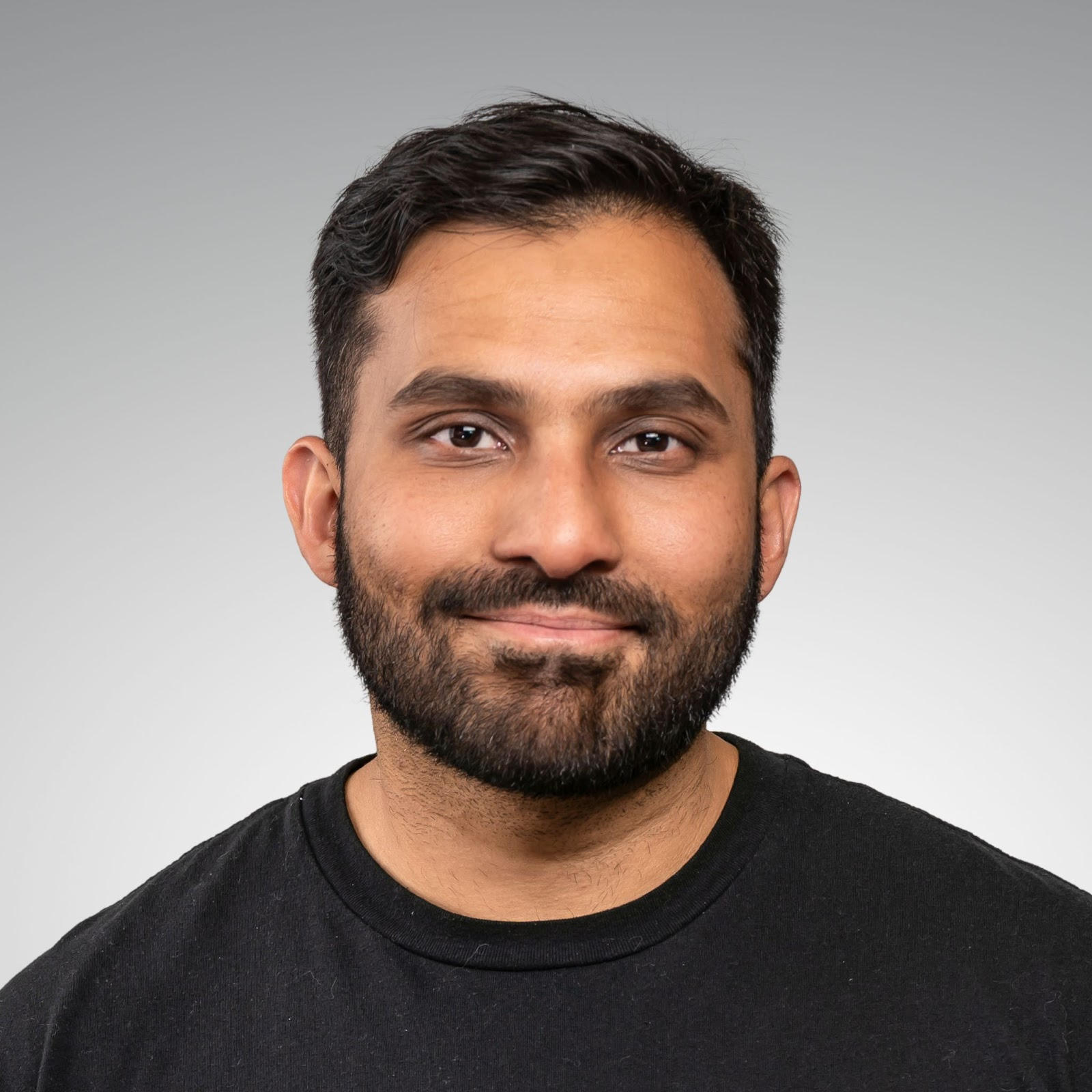Most AI stories start the same way: a shiny demo, a pilot that never scales, and executives left wondering where the promised impact went.
I’ve lived that story too many times, first in the U.S. Army, engineering systems that couldn’t afford failure, and later as an AI strategist, leading large-scale transformations for Fortune 500 companies. It’s why I believe AI doesn’t need any more hype, and the defining differentiator surrounding why I founded OrionQ.
The problem isn’t the technology. It’s the lack of frameworks that makes it work.
From the Field to the Boardroom
In the Army, I learned what failure actually costs. Systems had to perform every time, under pressure, without excuses. That discipline shaped how I lead today.
When I moved into tech, I carried that mindset into every project, especially at CarMax, where I led a team that built the personalization engine supporting 790,000 annual car sales and an $18 billion finance portfolio. Later, at T-Mobile, I partnered with OpenAI to scale GPT-powered tools across 7,500 employees in under two months.
Those experiences taught me that AI’s real challenge isn’t technology; it’s the lack of frameworks that make technology useful. You can have the smartest model in the world, but without a system to connect it to people, data, and process, it’s just another dashboard.
Building Systems That Think Together
When I founded OrionQ in 2024, it wasn’t to sell “AI in a box.” It was to solve what I call AI fragmentation, the disconnect between teams, systems, and data that kills productivity.
Instead of stacking tools, I wanted one intelligent infrastructure that aligned revenue teams on shared outcomes. That idea became OrionQ’s foundation: a unified RevOps platform where lead generation, marketing, and sales all operate from a single “brain.”
But this isn’t an ad. The point is why I built it this way. I’d seen too many companies lose months trying to integrate five different tools when they could be generating results in two weeks. I wanted to prove that accountability and automation can coexist.
Proof over Promises
I’ve always believed software should prove it works before it gets paid. That belief led me to adopt outcome-based pricing. If our systems don’t deliver a measurable result: a qualified lead, a launched campaign, or a booked meeting, our clients don’t owe us a dime. It’s not a marketing gimmick; it’s how we stay honest.
Accountability is what separates innovation from theater. In the military, you can’t “demo” reliability; you earn it. AI should be no different.
Too many companies mistake experimentation for progress. Pilots and proofs of concept are valuable, but they should exist to validate performance, not postpone it. The next generation of AI builders will be defined by how quickly they can connect intent to verified outcomes, not by how much code they ship.
If there’s one shift I hope to see in enterprise AI, it’s this: less storytelling, more scorekeeping. The tools that endure will be the ones that can prove their worth in the field, under pressure, in real workflows, and in front of real customers.
Lessons from the Military Applied to AI
Military life taught me three things that now guide my approach to AI:
- Plan for uncertainty. Build systems that adapt when conditions change.
- Communicate clearly. Every part of a mission, or a business, depends on shared context.
- Execute with discipline. Fancy tools don’t matter if they fail under stress.
That’s how I think about enterprise AI deployments today. Every rollout is a coordinated operation: timing, communication, and precision matter as much as code.
Why Frameworks Outlast Features
Features will always evolve; frameworks endure. The same prompting framework I taught at T-Mobile still guides how executives experiment with AI today. A clear framework turns experimentation into a repeatable process, not a guessing game.
The truth is, technology changes faster than organizations can adapt. Frameworks give leaders something timeless to anchor to, a shared language for how to evaluate, deploy, and improve whatever tool comes next. Without that foundation, even the best innovations collapse under their own complexity.
AI doesn’t fail because it’s weak; it fails because it’s unstructured. The teams that win aren’t the ones chasing the latest model; they’re the ones who’ve built a culture that knows how to absorb new ones.
For me, OrionQ isn’t the end goal; it’s a testbed for that philosophy. I want to show that when systems are built with discipline and transparency, AI stops being a black box and starts becoming a trusted collaborator.
Looking Ahead
As AI adoption accelerates, the mission for OrionQ is both technical and cultural: rebuilding trust in automation by proving that systems can deliver measurable, repeatable results. The company is expanding its reach into industries where speed and precision define success; construction, professional services, and SaaS, among them.
The next era of AI won’t be won by those who move fastest; it’ll belong to those who deliver results that last.
That’s what I’m building toward: AI that earns its place in the enterprise, not by dazzling demos, but by showing up every day and doing the work.



